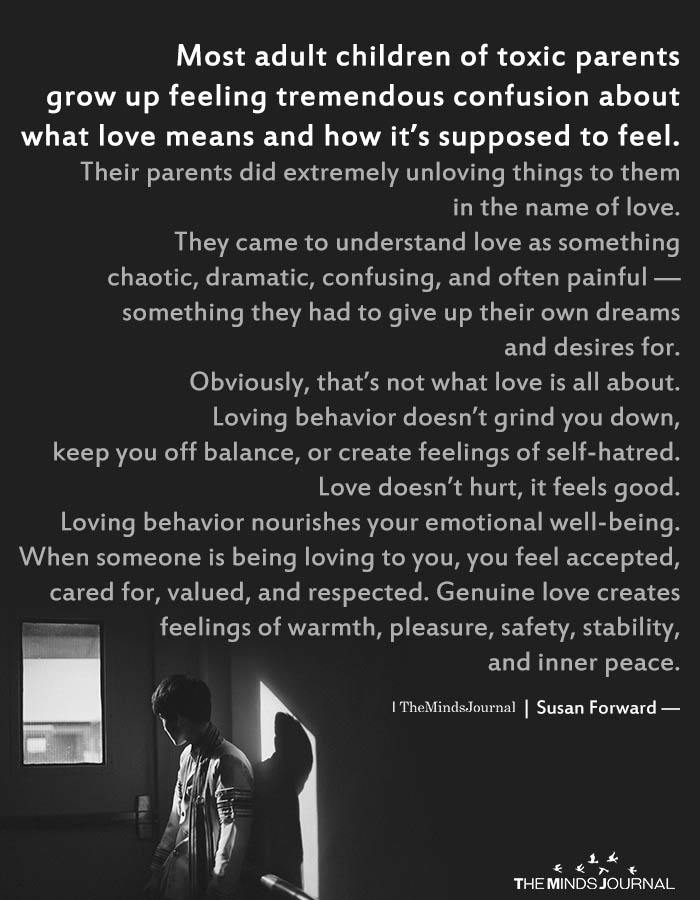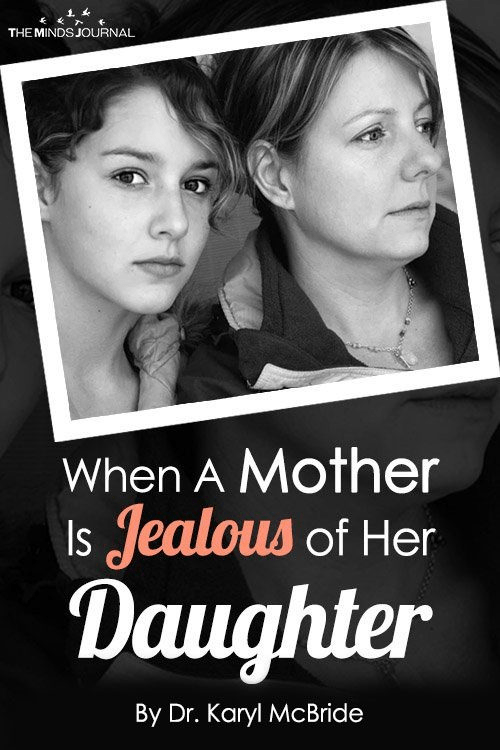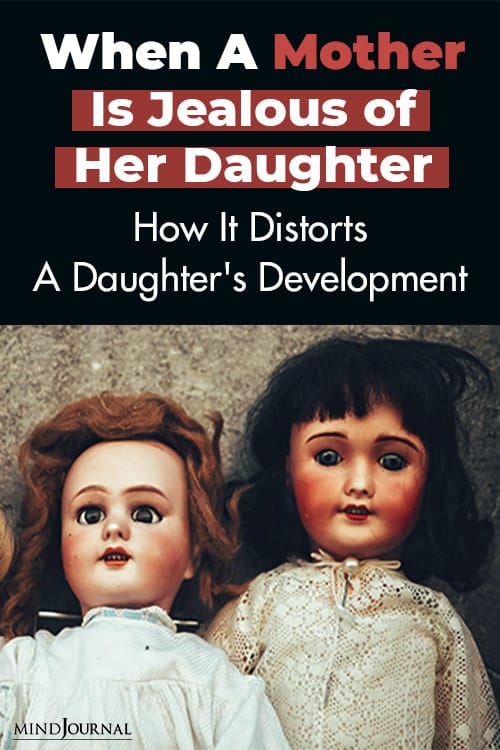There are definitely ways in which mother daughter relationships are wonderful but they often come with a fair share of drama and toxicity. When a mother is jealous of her daughter, it’s tough for the child to have normal development.
When I was writing the book Will I Ever Be Good Enough? Healing the Daughters of Narcissistic Mothers, I found that I heard certain kinds of painful stories over and over again, like themes in a piece of music.
One theme was that of mothers being jealous of their daughters. So much so that I included it in what I call the “Ten Stingers” of mother-daughter dynamics when the mother has a high level of narcissistic traits.
Normal or healthier mothers are proud of their children and want them to shine. But a narcissistic mother may perceive her daughter as a threat. If attention is drawn away from the mother, the child suffers retaliation, put-downs, and punishments.
Related: 24 Characteristics of Narcissistic Mothers
The mother can be jealous of her daughter for many reasons: her looks, her youth, material possessions, accomplishments, education and even the young girl’s relationship with the father.
This jealousy is particularly difficult for the daughter as it carries a double-message: “Do well so that Mother is proud, but don’t do too well or you will outshine her.”
- Samantha has always been the petite one in the family. She says that most of her relatives are overweight, including her mother, who is obese. When Samantha was 22, her mother ripped her clothes out of her closet and threw them to the bedroom floor, exclaiming, “Who can wear a size four these days? Who do you think you are? You must be anorexic, and we’d better get you some help!”
- Felice, told me, “My mother always wanted me to be pretty but not too pretty. I had a cute little waist, but if I wore a belt that defined my waistline, she told me I looked like a slut.”
- Mary sadly reported, “Mom tells me I’m ugly, but then I am supposed to go out there and be drop-dead gorgeous! I was a homecoming queen candidate and Mom acted proud with her friends but punished me. There’s this crazy-making message: The real me is ugly, but I am supposed to fake it in the real world? I still don’t get it.”
While many people believe that to be envied would be a desirable, powerful experience, in reality being envied, particularly by one’s own mother, is unnerving and awful.
The daughter’s sense of self is canceled by disdain and criticism.
Her goodness is questioned or labeled, or made light of, which causes her to feel like “her reality as a person is obliterated.” (Cinderella and Her Sisters: The Envied and The Envying).
As the daughter analyzes what her mother appears jealous about, she comes to feel unworthy. It makes no sense to the daughter that her own mother would have these bad feelings about her.
The daughter tries her best to make sense of the situation and decides that something must be wrong with her.
I have found that daughters of narcissistic mothers typically find it hard to discuss envy from their own mothers, and find it even harder to come to terms with it!
They usually do not see their own goodness enough to recognize maternal envy for what it is. Instead they believe that they have yet again done something wrong. If they have internalized the “not good enough” feeling, they don’t see themselves as someone anyone would envy.
The whole situation is crazy-making for the daughter’s feelings. It creates hurdles to healthy development and the building of sense of self.
Meanwhile, what’s going on with mom?
Envy allows the insecure mother to feel temporarily better about herself. When she envies and then criticizes and devalues the daughter, she diminishes the threat to her own fragile self-esteem.
Envy is a powerful tool in the narcissist’s repertoire, and you will see this in the mother’s interactions with other people as well. But, when directed at the daughter, it creates a feeling of helplessness and painful self-doubt.
Although there are many ways in which a mother’s jealousy creates hurdles for the daughter, let’s look at just a few.
Related: 19 Signs You Were Raised By a Narcissistic Mother or Father
What Happens When A Mother Is Jealous Of Her Daughter
1. Developmental Sabotage
While the young girl is growing up she uses her mother as her primary example of how to be a girl, woman, friend, lover, and person in the world.
If this same mother is putting her down, and jealous of her accomplishments, the child not only becomes confused, but often gives up.
Because it is the job of the parent to fill each developmental stage with nurturing, love, support and encouragement, the daughter finds an emptiness that she cannot explain.
Most children want to please their parents so if given this mixed message, it is easier and perhaps even safer to do nothing and therefore not expose oneself to criticism.
The message from mom is: “If at first you don’t succeed, give up!”

2. Distorted Relationship with Father
Of course, children need to have healthy relationships with both parents.
If mother is jealous of the relationship the daughter has with the father, what does the daughter do? She wants both of her parents to love her.
Who does she please?
How does she handle this delicate balance?
More complicating is the question of what the father does?
Often men in relationship with female narcissists choose to cater to the mother so as to maintain the adult relationship. So that leaves a father unable to connect with his daughter and of course this leaves the daughter with a lack of emotional connection with both parents.
3. Incest
The most extreme cases of mother-daughter jealousy appear in families where there is incest.
If the father is the offender and the mother becomes jealous of the father-daughter relationship, then she too becomes an offender and she cannot put the daughter first. Instead, she sees her daughter like “the other woman, going after her husband.”
In most incest cases we have worked with, when the father is the offender, this is not the case. The mother takes the side of the child as it should be and leaves the offender.
However, sometimes we see the dynamic of jealousy in the mother and this is heartbreaking. In those situ ations, the daughter is not only a victim of sexual abuse but also a victim of her mother’s envy and hatred.
4. The Pain of Being Unloved
In all cases of maternal jealousy towards the daughter, the daughter is left with little support for who she is as a whole person.
She feels unloved and as Mother Theresa so aptly writes, “The most terrible poverty is loneliness, and the feeling of being unloved.”
Envy is like an anger that destroys a young developing woman. It is terrifying for the child at any age.
In review of the literature and other writers on this subject, many say that mother-daughter jealousy is often misinterpreted or not really that common. Some say it is even normal at some level.
Mothers are often reaching menopause when their young daughters are developing into beautiful young women and some say that it may be normal for mothers to have some touchy feelings about aging.
It’s important to understand that the poisonous, corrosive envy felt by narcissistic mothers is not normal. The bar is raised. It is destructive. The challenge for daughters of narcissistic mothers is to learn how to recognize and cope with abnormal maternal envy.
A common pattern in narcissistic families is that of constant comparisons to others.
Envy rears its ugly head in many other contexts as well. “How does our family measure up to others and do we look good enough to the outside world?” Children learn to do this and become adults who are always worried about comparisons.
If this is you and you were raised by narcissistic parents, learning how to cope is a must and part of your own recovery.
Confronting the narcissist does no good. You have to release yourself from your confusion and see the envy for what it is. To do this, you must recognize your own goodness and strength.
Related: 7 Things Common In Children Raised by Over Controlling Parents
Don’t be spiteful or revengeful as that destroys you. The envy that is thrown your way does not belong to you. It is a part of the parent’s disorder.
“Envy comes from people’s ignorance of, or lack of belief in, their own gifts.” – Jean Vanier
You don’t have to take it on. Your recovery process allows you to individuate so that you are no longer defined by anyone but yourself.
Using self-compassion, self-understanding, and working your recovery is worth the time and energy. Creating your own exciting and significant life is gratifying and the more you tune into the woman you were meant to be, the better it feels!
Want to know more about a narcissistic mother who is jealous of her daughter? Check this video out below!
Karyl McBride, Ph.D., is a licensed marriage and family therapist and author of Will I Ever Be Good Enough? Healing the Daughters of Narcissistic Mothers.
Written by Karyl McBride Ph.D.
Originally appeared on Psychology Today
Books:
- Dr. Karyl McBride’s new book: Will I Ever Be Free of You? How to Navigate a High-Conflict Divorce from a Narcissist, and Heal Your Family: https://www.willieverbegoodenough.com/divorcing-narcissist-book/
- Will I Ever Be Good Enough? Healing the Daughters of Narcissistic Mothers: https://www.willieverbegoodenough.com/about-will-i-ever-be-good-enough/












Leave a Reply